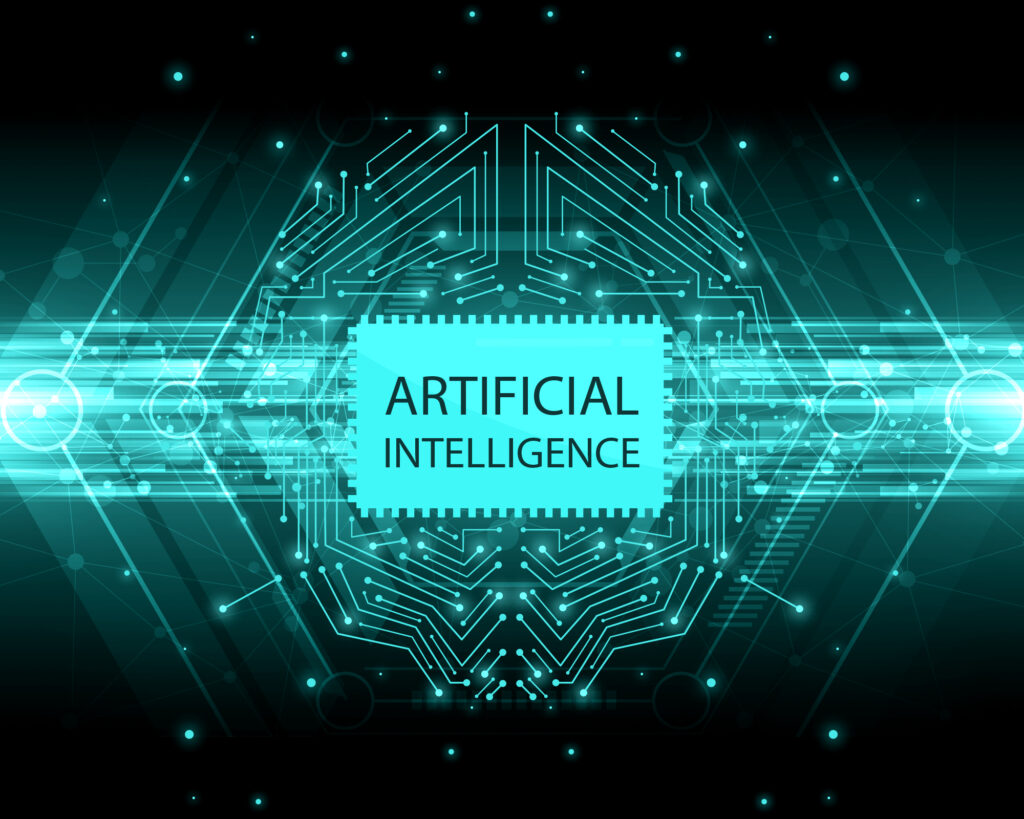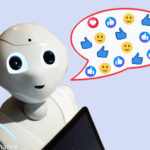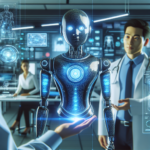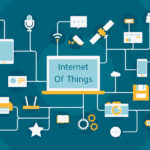
Table of Contents
Artificial Intelligence: The Future of Everything?
Artificial Intelligence (AI) stands at the forefront of technological evolution, reshaping industries and influencing daily life. From its historical origins to its applications in diverse sectors, this article explores the multifaceted landscape of AI and its role in shaping the future.
I. Introduction
In the digital era, Artificial Intelligence has emerged as a transformative force, redefining the way we live, work, and interact. As we navigate through the complexities of AI, it becomes imperative to understand its historical roots and the pivotal role it plays in our rapidly evolving world.
A. Definition of Artificial Intelligence
Fundamentally, artificial intelligence (AI) is the creation of computer systems capable of carrying out activities that call for human intelligence. Learning, reasoning, problem-solving, perception, and language comprehension are some of these tasks.
B. Importance of Artificial Intelligence in Today’s World
The significance of AI is underscored by its ubiquitous presence in various aspects of our lives. From virtual assistants to advanced robotics, AI has permeated diverse fields, revolutionizing the way we approach challenges and opportunities.
C. The Evolving Landscape of Technology
As technology continues to advance, the landscape of AI evolves in tandem. The integration of AI with other cutting-edge technologies like the Internet of Things (IoT) and machine learning heralds a future where intelligent systems collaborate seamlessly.
II. Historical Perspective
To comprehend the present and future of AI, a journey through its historical milestones is crucial. Understanding the evolution of AI provides insights into its transformative journey and the impact it has had on industries.
A. Origins of Artificial Intelligence
The roots of AI trace back to ancient times, where philosophers and mathematicians laid the groundwork for logical reasoning. However, the formal inception of AI as a field of study dates back to the mid-20th century.
B. Milestones in AI Development
From early symbolic reasoning machines to the advent of neural networks, AI has undergone significant milestones. The development of expert systems, natural language processing, and machine learning algorithms marked pivotal moments in the evolution of Artificial Intelligence.
C. Impact on Industries Over the Years
AI’s influence extends across diverse industries, from healthcare and finance to education and entertainment. The integration of AI technologies has streamlined processes, enhanced efficiency, and unlocked new possibilities for innovation.
III. Applications of Artificial Intelligence
The versatility of AI manifests in its applications across various sectors, shaping the way we approach healthcare, finance, education, and entertainment.
A. AI in Healthcare
In healthcare, AI has proven instrumental in diagnostics, drug discovery, and personalized medicine. Machine learning algorithms analyze vast datasets to identify patterns and contribute to more accurate diagnoses and treatment plans.
B. AI in Finance
The financial sector benefits from AI’s ability to analyze market trends, manage risks, and automate routine tasks. Algorithmic trading and fraud detection are among the many applications that enhance efficiency and decision-making in finance.
C. AI in Education
AI is reshaping education by personalizing learning experiences, automating administrative tasks, and providing intelligent tutoring systems. Adaptive learning platforms leverage AI to cater to individual student needs, fostering a more effective educational environment.
D. AI in Entertainment
From recommendation algorithms on streaming platforms to the creation of deepfake videos, AI is leaving its mark on the entertainment industry. Virtual reality experiences, powered by AI, provide immersive and interactive content for audiences.
IV. Challenges and Concerns
While the promise of AI is immense, it comes with a set of challenges and ethical considerations that need careful navigation.
A. Ethical Considerations in AI
The ethical implications of AI involve issues such as bias in algorithms, privacy concerns, and the responsible use of AI in decision-making processes. Striking a balance between innovation and ethical considerations is crucial for the responsible development of AI.
B. Job Displacement and Economic Impact
As AI automation becomes more prevalent, concerns about job displacement and its economic repercussions come to the forefront. Addressing these challenges requires a collaborative effort from policymakers, businesses, and educators.
C. Bias in AI Algorithms
The algorithms powering AI systems are not immune to bias, reflecting the biases present in the data they are trained on. Recognizing and mitigating algorithmic bias is essential to ensure fair and equitable AI applications.
V. Future Trends
The future of AI holds exciting possibilities, with ongoing advancements in machine learning, the integration of AI with IoT, and a focus on ethical AI development practices.
A. Advancements in Machine Learning
Machine learning, a subset of AI, continues to evolve. The development of more sophisticated algorithms and models enhances the ability of AI systems to learn and adapt, pushing the boundaries of what is achievable.
B. Integration of AI with IoT
The synergy between AI and IoT amplifies the capabilities of both technologies. Smart devices and sensors connected to the internet leverage AI to process and analyze data, leading to enhanced automation and decision-making.
C. Ethical AI Development Practices
As AI becomes more ingrained in society, the importance of ethical development practices cannot be overstated. Transparency, accountability, and inclusivity must guide the creation and deployment of AI technologies.
VI. Artificial intelligence and Society
AI’s impact extends beyond specific industries, influencing the fabric of society and everyday life.
A. AI’s Influence on Daily Life
From voice-activated virtual assistants to predictive algorithms shaping online experiences, AI has seamlessly integrated into our daily lives. The convenience and efficiency offered by AI contribute to its widespread acceptance.
B. Social Acceptance and Perception
As AI becomes more prevalent, societal acceptance and perception play a crucial role. Educating the public about AI, its capabilities, and its limitations fosters a more informed and receptive society.
C. Education and Awareness
Promoting AI education and awareness is essential for preparing individuals for the AI-driven future. Bridging the knowledge gap ensures that people are not only users of AI but also contributors to its responsible development.
VII. The Role of Governments and Regulations
In navigating the AI landscape, governments play a pivotal role in establishing and enforcing regulations that balance innovation with safety.
A. Current Policies on AI
Various countries have started formulating policies to regulate the development and deployment of AI technologies. These policies address issues such as data privacy, cybersecurity, and ethical considerations.
B. The Need for Global Regulations
Given the global nature of AI development, the need for harmonized international regulations is evident. Collaborative efforts on a global scale are essential to address the challenges posed by cross-border AI applications.
C. Balancing Innovation and Safety
Governments face the challenge of fostering innovation while ensuring the safety and ethical use of AI. Striking a balance requires ongoing dialogue between policymakers, industry experts, and the public.
VIII. Artificial intelligence and Creativity
Contrary to fears of AI replacing human creativity, it is increasingly evident that AI can be a powerful tool in the creative process.
A. AI in Art and Design
AI-generated art, music, and design showcase the creative potential of artificial intelligence. Collaborations between artists and AI systems result in unique and innovative creations that challenge traditional notions of creativity.
B. Collaboration between Humans and AI
The synergy between human creativity and AI capabilities opens new avenues for collaboration. AI assists creatives by generating ideas, automating repetitive tasks, and offering novel perspectives, enhancing the overall creative process.
C. Redefining Creativity in the Digital Age
The integration of AI in creative industries prompts a redefinition of creativity. Rather than replacing human creativity, AI amplifies and expands the possibilities, pushing the boundaries of what can be achieved.
IX. Challenges in Artificial intelligence Adoption
Despite the potential benefits, widespread adoption of AI faces various challenges that need to be addressed.
A. Resistance to Change
Resistance to AI adoption often stems from fear of job displacement, lack of understanding, or cultural factors. Overcoming this resistance requires proactive communication, education, and showcasing the positive impact of AI.
B. Overcoming Technological Barriers
Access to AI technologies and expertise is not uniform globally. Overcoming technological barriers involves initiatives to democratize AI, making it accessible to a broader range of businesses and individuals.
C. Bridging the Skill Gap
The rapid evolution of AI demands a skilled workforce. Bridging the skill gap requires investments in education, training programs, and collaboration between academia and industry to produce AI-literate professionals.
X. Artificial Intelligence in the Business Landscape
Businesses are increasingly leveraging AI to enhance efficiency, decision-making, and customer relations.
A. Improving Efficiency and Decision-Making
AI streamlines business operations by automating routine tasks, analyzing data for insights, and optimizing decision-making processes. This results in increased efficiency and competitiveness in the market.
B. AI in Marketing and Customer Relations
In marketing, AI-driven analytics and personalized recommendations enhance customer engagement. Chatbots powered by AI provide instant and personalized customer support, improving overall customer relations.
C. Small Businesses and AI Adoption
AI is not exclusive to large corporations; small businesses can also benefit from its applications. Cloud-based AI services and affordable solutions enable small businesses to leverage AI for growth and innovation.
XI. The Human-AI Collaboration
The concept of augmented intelligence emphasizes the collaborative relationship between humans and AI.
A. Augmented Intelligence Concept
Augmented intelligence recognizes that the synergy between human intuition and AI capabilities is more powerful than either alone. AI serves as a tool to augment human abilities, enabling more effective decision-making.
B. Enhancing Human Capabilities
Rather than replacing humans, AI enhances our capabilities. Automation of routine tasks allows humans to focus on more complex and creative aspects of their work, fostering innovation and job satisfaction.
C. Addressing Concerns About Autonomy
Concerns about AI autonomy and decision-making can be alleviated through transparent algorithms and ethical AI development practices. Human oversight remains crucial to ensure responsible and accountable AI systems.
XII. AI in Science and Research
The scientific community benefits significantly from AI, accelerating discoveries and advancing research.
A. Accelerating Discoveries with AI
AI expedites the analysis of complex data sets in scientific research. From genomics to climate science, AI-driven tools contribute to breakthroughs and insights that would be challenging to achieve through traditional methods.
B. AI’s Contribution to Scientific Breakthroughs
AI’s ability to identify patterns and make predictions aids scientists in formulating hypotheses and designing experiments. This accelerates the pace of scientific discovery and opens new frontiers in various fields.
C. Collaboration in Research and Development
Collaboration between AI systems and researchers fosters innovation. AI’s ability to process vast amounts of data and generate hypotheses complements the creativity and expertise of human researchers, leading to groundbreaking discoveries.
XIII. Future Challenges and Opportunities
Anticipating and addressing challenges while embracing the opportunities ahead is crucial for the responsible development and adoption of AI.
A. Anticipating Ethical Dilemmas
As AI becomes more integrated into society, anticipating and addressing ethical dilemmas is paramount. Continuous dialogue and proactive measures are essential to ensure the responsible use of AI technologies.
B. Preparing for Technological Shifts
The rapid pace of technological evolution requires proactive preparation. Businesses, governments, and individuals must adapt to technological shifts, ensuring a smooth transition into an AI-driven future.
C. Embracing the Opportunities Ahead
Amidst challenges, opportunities abound. Embracing the potential of AI for innovation, economic growth, and societal improvement requires a collaborative and forward-thinking approach.
XIV. Conclusion
In conclusion, Artificial Intelligence emerges not just as a technological advancement but as a transformative force shaping the future of everything. From its historical roots to its diverse applications, AI’s impact is profound and far-reaching. As we navigate the complexities and challenges, a thoughtful and responsible approach is essential to harness the full potential of AI for the benefit of humanity.
FAQs
- Is AI replacing human jobs?
- AI is automating routine tasks, but it also creates new job opportunities and enhances human capabilities. The key is to adapt and acquire skills relevant to the evolving job market.
- How can businesses, especially small ones, benefit from AI?
- Small businesses can leverage AI for efficiency, customer relations, and innovation. Cloud-based AI services and affordable solutions make it accessible to a broader range of businesses.
check out the article here










bulk xyandanxvurulmus.E5HfPgRZjUj7
The offer is still valid. Details https://zetds.seychellesyoga.com/jml
Content for your website https://zetds.seychellesyoga.com/info
Web Development Wizards https://zetds.seychellesyoga.com/info
Can provide a link mass to your website https://zetds.seychellesyoga.com/info
Your site’s position in the search results https://zetds.seychellesyoga.com/info
Free analysis of your website https://zetds.seychellesyoga.com/info
Content for your website https://zetds.seychellesyoga.com/info
Web Development Wizards https://zetds.seychellesyoga.com/info
Can provide a link mass to your website https://zetds.seychellesyoga.com/info
I offer mutually beneficial cooperation https://zetds.seychellesyoga.com/info
Cool website. There is a suggestion https://zetds.seychellesyoga.com/info
I really liked your site. Do you mind https://zetds.seychellesyoga.com/info
Here’s what I can offer for the near future https://zetds.seychellesyoga.com/info
You will definitely like it https://zetds.seychellesyoga.com/info
Content for your website https://ztd.bardou.online/adm
Web Development Wizards https://ztd.bardou.online/adm
Can provide a link mass to your website https://ztd.bardou.online/adm
Your site’s position in the search results https://ztd.bardou.online/adm
Free analysis of your website https://ztd.bardou.online/adm
SEO Optimizers Team https://ztd.bardou.online/adm
Cool website. There is a suggestion https://ztd.bardou.online/adm
Web Development Wizards http://fertus.shop/info/
Can provide a link mass to your website http://fertus.shop/info/
Your site’s position in the search results http://fertus.shop/info/